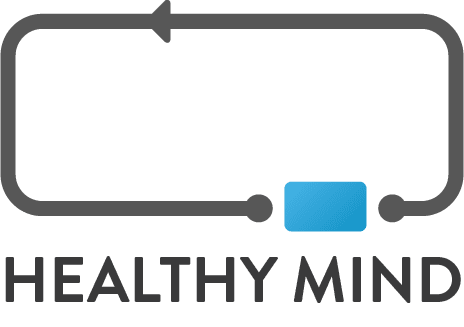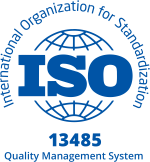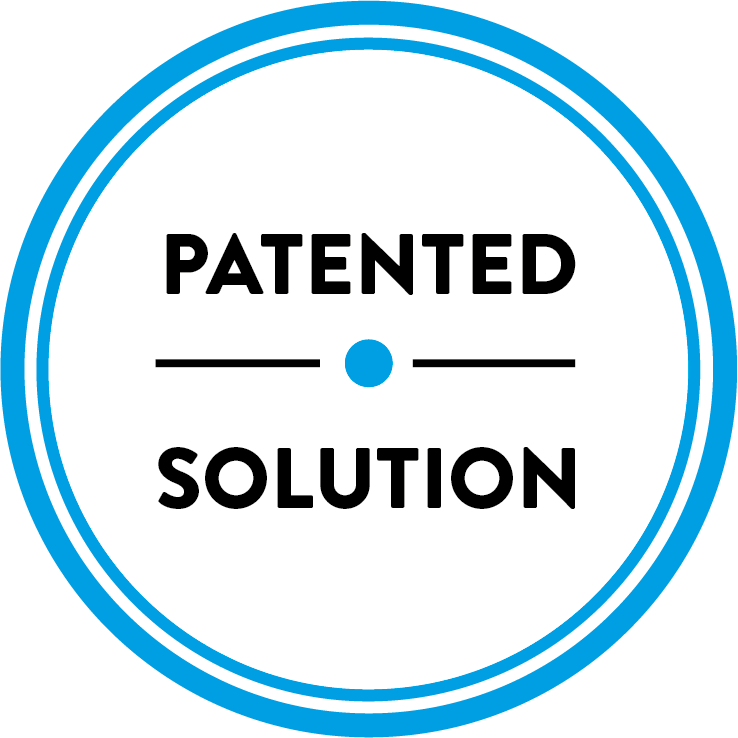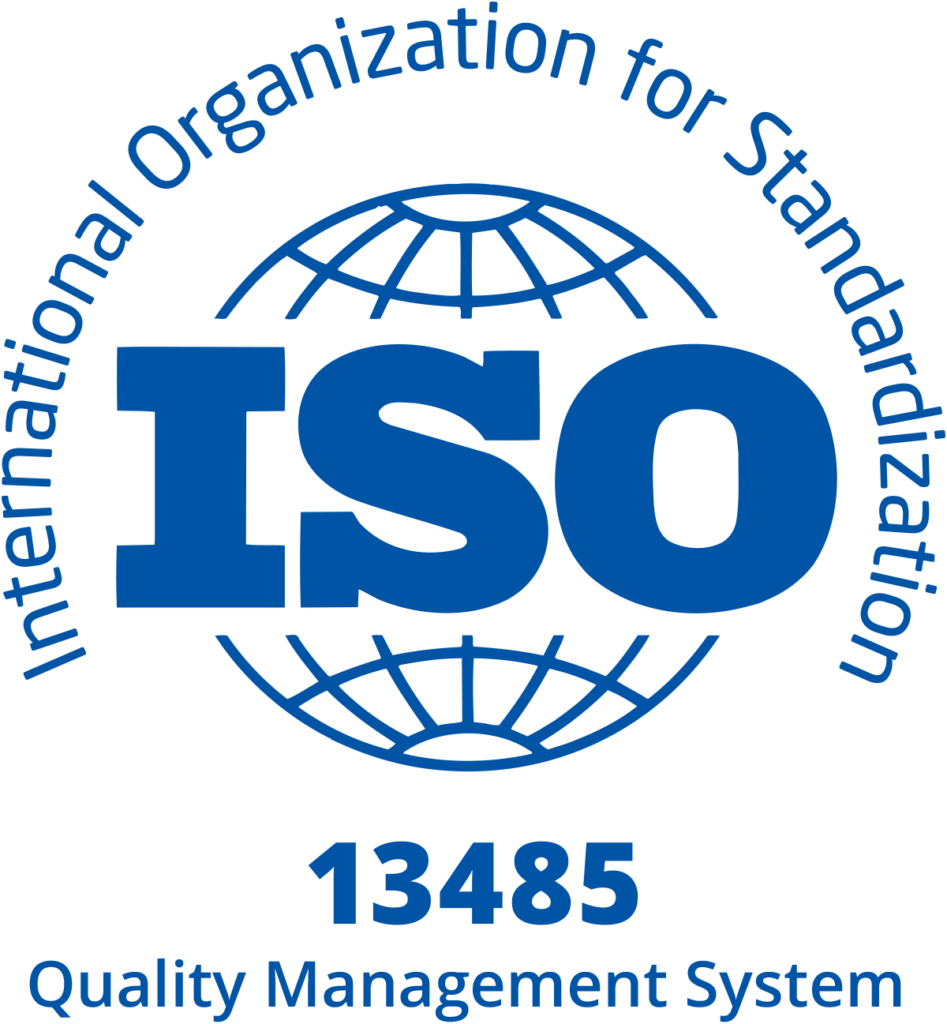Reducing preoperative anxiety through therapeutic techniques
Local anaesthesia aims to numb a specific area of the body so that a medical or surgical procedure can take place. Unlike a general anaesthetic, it does not involve a sleep phase. Although it inhibits the sensation of pain, local anaesthesia does not reduce preoperative anxiety, which can paralyse a patient and complicate procedures. Managing the stress of a local anaesthesia is therefore essential to facilitate the medical work and avoid complications. In this article, we suggest 3 effective methods to calm your nerves and live your operation peacefully.
1. Relaxing before an operation with medical hypnosis
Medical hypnosis consists of immersing the patient into a modified state of consciousness, between wakefulness and sleep. This hypnotic phase is achieved through mental suggestions, associations of ideas, images or games that stimulate the imagination.
The hypnotherapist verbally accompanies the patients throughout the process in order to soften and, by extension, to divert their attention from the pain. The mechanism involved is therefore palliative and not curative. Although medical hypnosis does not act on the symptoms, it relieves them.
There are several ways of awakening this state:
- consultation with a professional during a hypnosis session, either remotely or in person;
- self-hypnosis, which aims to achieve this sensation by its own means;
- the use of an intermediary device, such as therapeutic virtual reality headsets, which employ hypnotic processes.
In the case of an intervention, particularly surgery, using this non-medicinal technique brings an undeniable sense of well-being. Indeed, it limits the production of adrenalin, which induces a relaxation phenomenon. Hypnosis is a complement to medical anaesthesia without side effects. The analgesic result of medical hypnosis facilitates interventions and, above all, reduces preoperative anxiety.
A study by Dr. N. Christou and Prof. M. Mathonnet highlights the effectiveness of hypnosis in managing stress for patients undergoing local anaesthesia. Indeed, the research focuses on outpatient surgery for primary hyperparathyroidism. To perform this procedure, the patient lies in an uncomfortable position, which causes discomfort, despite the local anaesthetic. Hypnosis was then combined with the anaesthesia procedure in order to evaluate its influence on the comfort felt by the patient before and after the operation. The results of the questionnaires were clear: well-being improved after the addition of hypnosis to local anaesthesia. Although further comparative studies are needed, this result is deeply encouraging.
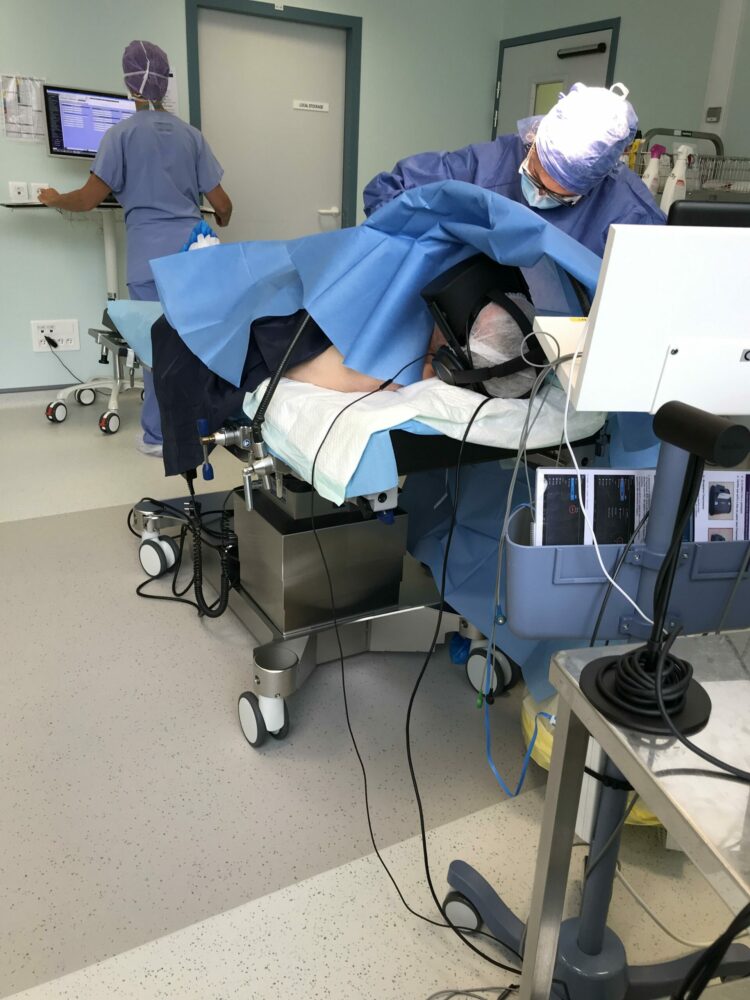
2. Reducing preoperative anxiety with the benefits of music therapy
Music therapy is defined as a care practice based on sound or musical mediation according to the French Federation of Music Therapy (FFM). Its objective is to support, accompany or re-educate patients. This technique is developed in two ways: active or passive.
In the first case, the practice aims to express one’s feelings through musical creation. The voice, the instruments, but also the surrounding objects, become a tool through which the patient explores his sensations and evacuates his anxieties. The second case, the passive form, is defined by a listening phase. The subject receives the sound stimulus, which promotes relaxation.
Like medical hypnosis, music therapy leads the patient to turn away from his or her suffering and concentrate on another aspect. In addition, the musical harmony created by the variation of tones reduces the level of cortisol, the hormone responsible for stress. In its place, other hormones are released: serotonin, dopamine and endorphin. Their analgesic and euphoric properties provide a deep sense of calm.
This therapy aims to limit the use of drugs, especially in the preoperative phase. As a complement to local anaesthesia, music therapy reduces the need for premedication and facilitates the patient’s recovery.
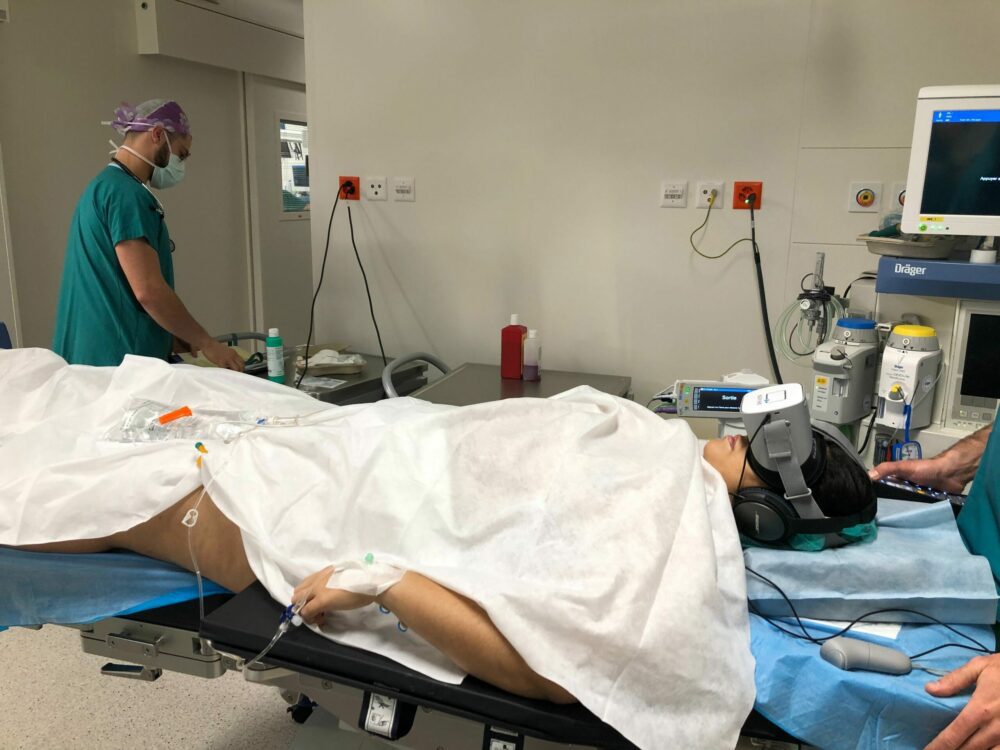
3. Managing the stress of local anaesthesia with virtual reality
Virtual reality immerses the user in a realistic 3D environment through a VR headset. The use of this technology in the medical field is becoming more and more popular and for good reason, its analgesic and anxiolytic effect is surprising. Indeed, several studies have investigated the subject, notably the team of Mosso Vázquez J.L., Wierderhold B.K., Miller I., Mosso Lara D. and Wierderhold M.D. The latter found a significant reduction in the perception of pain (-22%) and visceral response (-8% respiratory rate, -32% salivation) in the group using virtual reality during an upper gastroscopy.
In addition, the Healthy Mind solution combines the two previous relaxation methods, as well as cardiac coherence principles, to limit the patients’ stress. During the sessions, the subject’s attention is directed towards the virtual world and away from the anxiety-provoking atmosphere. Our helmets have already won over a large number of enthusiasts, such as the Lille Sud clinic, to reduce anxiety before operations.
This innovative approach, which can be combined with local anaesthesia, reduces preoperative apprehension. In addition to arousing curiosity when first used, the virtual reality headsets allow for rapid immersion.
The sessions last up to 80 minutes and the practitioner has an interface to control the progress. The patient then discovers a landscape of his choice among those proposed by our team: a walk in the forest, a sunny beach, a snowy mountain, a Zen garden, an underwater world and a sunny mountain. Each atmosphere introduces relaxing elements designed to bring about lasting relaxation.
The use of non-medicinal techniques in conjunction with local anaesthesia helps to alleviate patients’ preoperative anxieties. Hypnosis, music therapy and virtual reality rely on redirecting the subject’s attention to create a sense of calm. These therapeutic methods have considerable advantages in the field of anaesthesia and intensive care. In addition to managing stress prior to surgery, they also promote remission.
At Healthy Mind, we have chosen to develop virtual reality since this technology allows us to combine several principles in one device. To find out more, we encourage you to request a demonstration of our VR headsets.
